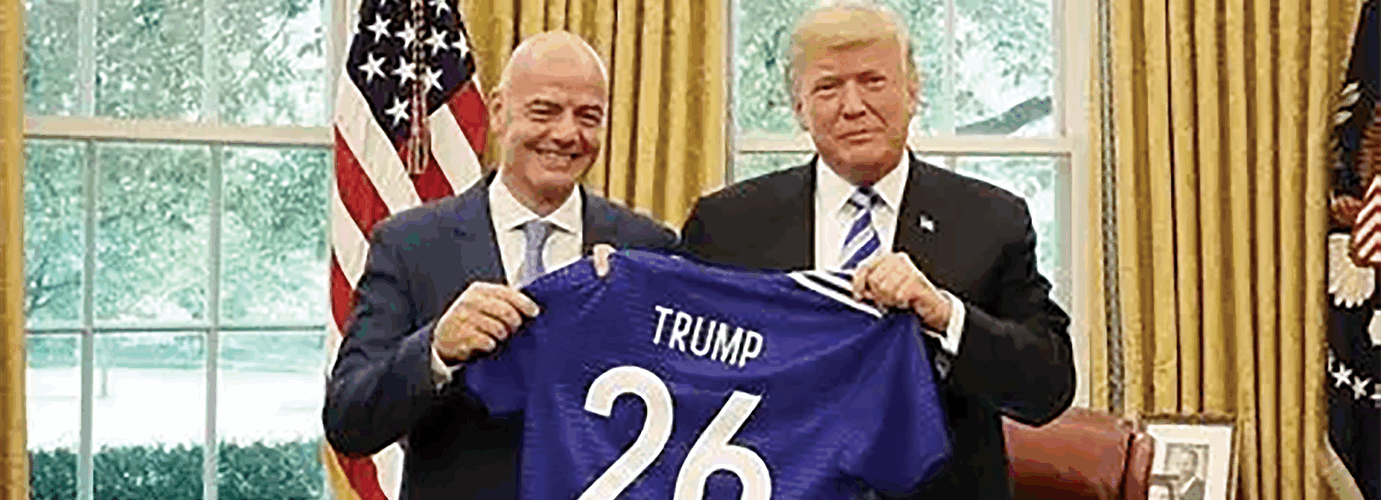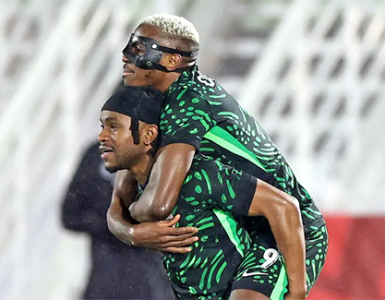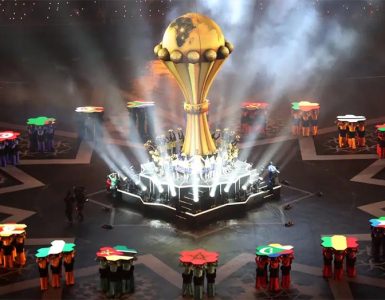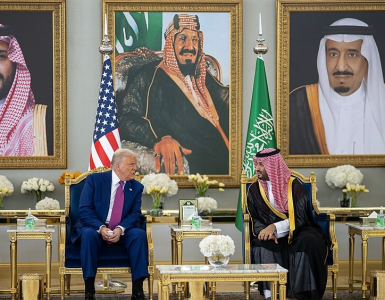LACK OF CLARITY: Athletes and immediate family members given the green light but could be uphill for some spectators wishing to attend the World Cup and 2008 Summer Olympics
By Sports Reporter
Sport fans wishing to watch their athletes in the forthcoming FIFA World Cup and the 2008 Summer Olympics to be held in the US may find a serious huddle in president Donald Trump’s latest travel limitations.
Fans from the 19 named nations may be barred from seeing their athletes compete in some of the globe’s most important sporting events in the next several years, even if the on-field competition won’t be affected.
Trump’s proclamation does not appear to have a major immediate impact on planning for the World Cup, 2028 Summer Olympics or other major international sporting events scheduled for his second term in office as athletes, coaches, support staff and immediate family members will still be able to enter the country.
But fans from those nations now face an even more uphill battle to see games in person, despite members of the Trump administration encouraging the world to come to the US for these global events.
Trump’s travel ban fully restricts travel from Afghanistan; Myanmar, also known as Burma; Chad; Republic of the Congo; Equatorial Guinea; Eritrea; Haiti; Iran; Libya; Somalia; Sudan; and Yemen. There are partial restrictions for Burundi, Cuba, Laos, Sierra Leone, Togo, Turkmenistan and Venezuela.
But there are exceptions carved out in the proclamation, including for athletes, coaches, important staffers and immediate family for athletes traveling to the US for the World Cup, Olympics and “other major sporting event as determined by the Secretary of State.”
The proclamation also states that people who have existing visas to be in the United States will not have their visas revoked as a part of the travel ban.
That means the Iranian national team – which has already qualified for the 2026 World Cup – will be able to play in the tournament, as would Sierre Leone, Sudan, Libya, Burundi, Venezuela, Cuba and Haiti should those teams qualify. Those nations are still in the fight for qualification for the World Cup as the tournament field becomes clearer.
The Republic of the Congo, Equatorial Guinea, Eritrea, Chad, Togo and Somalia all appear to be longshots for World Cup qualification and Afghanistan, Laos, Myanmar, Yemen and Turkmenistan have already been eliminated.
While the teams, their staffs and their immediate family would be able to travel to the US for the tournament, the travel ban would likely keep most of their fans from coming into the country for any games.
Seven more countries – Burundi, Cuba, Laos, Sierra Leone, Togo, Turkmenistan and Venezuela – face significant but not full restrictions on travel.
Section four of the travel ban includes a clear exemption for sports stars travelling to those competitions – and other “major” sporting events.
It says “any athlete or member of an athletic team, including coaches, persons performing a necessary support role, and immediate relatives, traveling for the World Cup, Olympics, or other major sporting event as determined by the secretary of state” can still travel to the US.
“Two hundred and six countries are preparing to come to the Games,” said Nicole Hoevertsz, an IOC vice president who chairs the LA28 coordination commission.
“The federal government has given us that guarantee … to make sure that these participants will be able to enter the country… We are very confident that this is going to be accomplished.”
As well as the 2028 Olympic and Paralympic Games in Los Angeles, the USA will also co-host the Fifa World Cup in 2026, alongside Canada and Mexico. What key detail has been left out of the announcement for athletes?
The text means that those participating in the two major global sports events the US will host during Trump’s second term will still be able to travel. But the lack of detail around other sporting events throws open a series of important, and as yet unanswered, questions.
The State Department has offered no further clarification or measurement criteria for what Secretary of State Marco Rubio will or will not consider a “major sporting event”.
The Concacaf Gold Cup, for example, begins in the USA on 15 June and Haiti are due to participate. But given the travel ban does not list the Gold Cup (which features North America, Central America and Caribbean nations) as among the exempted major events, their participation is now in doubt.
The phrasing ‘World Cup’ is also unclear. The revamped Fifa Club World Cup, featuring 32 of the world’s best club teams, will take place in the USA from 14 June to 13 July. 10 players from countries under travel restriction are on the books of the competing clubs, but whether the tournament is included in the exemption or not has not yet been clarified.





























